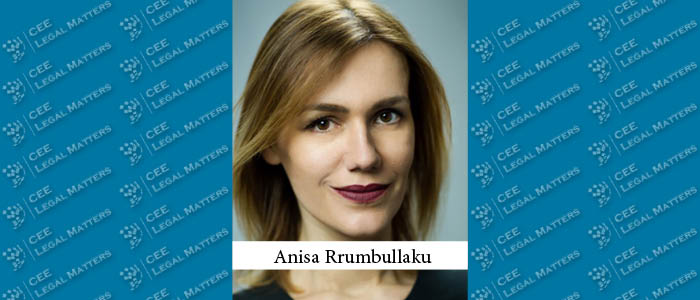A common stereotype prevails that banking contracts are non-negotiable, and borrowers hardly have a say in the terms of their contracts. However, this is not the case: like any economic operator, banks are also willing to compromise. Banks’ flexibility varies depending on who and when is seeking preferential treatment and on the contractual terms subject to negotiations.
InterRisk Head of Legal Leaves to Set up New Firm in Poland
Anna Grykin, former Head of Legal at InterRisk, has returned to private practice by setting up Grykin Law Firm in Poland.
Four Months to Disclose Legal Entity’s Ownership Structure
11 June 2021 saw the published form of disclosing the legal entity’s ownership structure approved by Order 163 of the Ministry of Finance of Ukraine dated 19.03.2021 (hereinafter – the Order) pursuant to Law of Ukraine No. 361-ІХ “On Prevention and Counteraction to Legalization (Laundering) of Proceeds of Crime or Financing of Terrorism and Proliferation of Weapons of Mass Destruction” dated 06.12.2019. New requirements to the disclosure of the legal entity's ownership structure will apply from 11 July 2021. All legal entities incorporated in Ukraine must submit their ownership structures to the state registrar till 11 October 2021 in compliance with new requirements.
A New Era in Crowdfunding Begins: The Single European Regulatory Framework
Crowdfunding is a type of intermediation where the service provider operates a platform (e.g. website) open to the public. The purpose of that platform is to match enterprises seeking financing with prospective investors. The enterprises typically receive small amounts of money from many investors (usually natural persons), via lending (lending-based crowdfunding) or investment into shares (investment-based crowdfunding). Some of the best-known crowdfunding platforms are Kickstarter or Indiegogo. By introducing a single European regulatory framework, the uncertain Hungarian legal environment might change, potentially giving a boost to the crowdfunding market.
CRD V Finally Implemented into Austrian Law
A law implementing, among others, Directive (EU) 2019/878 amending Directive (EU) 2013/36 (Capital Requirements Directive - CRD V) has been passed by the Austrian Parliament and Federal Council, and has been published in the Federal Gazette. CRD V (as part of the package together with Regulation (EU) 2019/876 amending Regulation (EU) 575/2013 – CRR II) aims to close regulatory gaps in the existing financial regulatory framework and, while adding prudential measures as to capital requirements, requires certain entities to comply with new licensing obligations.
Hot Practice: Interview with Igor Krasovskiy of Integrites in Ukraine
The Banking & Finance practice of Integrites in Ukraine has had its hands full lately, according to Partner Igor Krasovskiy, mainly thanks to the economic impact of Covid-19, Ukraine’s energy strategy, and the country’s commitments to international financial institutions.
Application for Determining of Fee for Protection and Improvement of the Environment for 2021
The fee for 2021 is determined by the decision of competent authority on basis of applications of payers that are obliged to submit them no later than 31 July 2021.
































